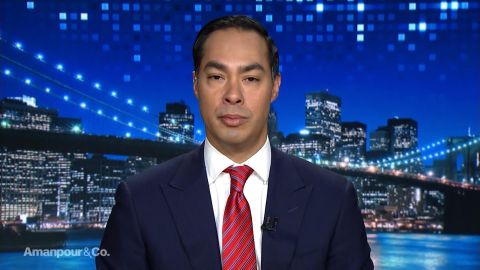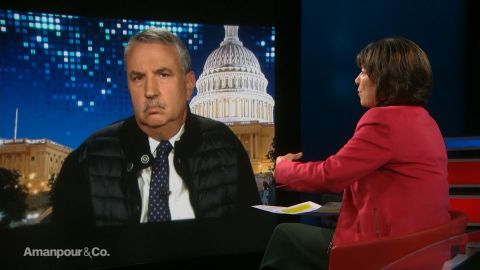Read Transcript EXPAND
THOMAS FRIEDMAN: I don’t think Saudi Arabia can have a crown prince and future king who cannot come to the United States of America. And I believe as a result of this action, I cannot see how the Congress is not going to invoke the global Magnitsky Act, to sanction the crown prince, I don’t see how Congress would stand for it. And so, they have a dilemma, how can Saudi Arabia — and we have a dilemma, our closest ally in that part of the world, are — if a ruler can’t come to America in the same time. So, I don’t see how he can be king and I don’t see how he cannot be king because he’s leveled all of his rivals. And so, there is not a natural person to succeed him there. And his father is ailing, he appears to have some form of dementia. It’s not clear how much he’s in and out. And that’s why I think what you’re going to see, Christiane, the whole system there is going to cease up. It has to be in a complete panic. They’re complete paralyzed.
AMANPOUR: OK. So, you know, put on your Middle East observer hat, which you’ve been doing since 1979. We’re going to get to the details in a moment. But right now it appears that if you take the Trump administration’s point of view, here they are having tried to box Iran into a corner using Saudi Arabia as their biggest ally in that and within a few days or a couple of weeks, want to add a whole new raft of oil sanctions on Iran, November 5th is the deadline.
FRIEDMAN: Yes.
AMANPOUR: You say, you know, the Saudis are probably in a panic. But it’s the Trump administration in a panic how to react? Because, you know, all of a sudden, their best laid plans to squeeze Iranian oil might not work if they start — you know, given what they need to get out of Saudi Arabia.
FRIEDMAN: Yes.
AMANPOUR: And Saudi Arabia doesn’t give oil, what happens?
FRIEDMAN: I think they’re in a real dilemma now. And maybe, Christiane, we’ll force them down another track toward Iran. You know, Trump has thrown some olive ranches toward the Iranian saying, you know, “We could — I’m — I’m ready to talk to you like I did with Kim Jong-un in North Korea.” And I have a feeling, you know, the Iranians probably might want to talk to him. Let me just sort of go to one level higher and say, I believe the sort of Iranian Sunni — or the Persian-Iranian, you know, Sunni Arab civil war in the Middle East. It has completely driven that region into this terrible corner that it’s in right now. And until — unless that is resolved, the region, it’s going to be doomed, Christiane, it’s going to be doomed. And I think American diplomacy, what it should be and about all along is not taking sides in this war, it’s not like one side is morally greater than the other. It actually should be seeing, this is the most important peace process in the world, I think it’s between Iran and Saudi Arabia. It’s between Shia Iran and the Sunni Arab world. And if we don’t get that right, it’s just going to be one more of this after another. But the whole region is just going to spiral downward and downward, farther and farther.
About This Episode EXPAND
Christiane Amanpour interviews New York Times Foreign Affairs Op-Ed Columnist Thomas Friedman about his support of Crown Prince Mohammed Bin Salman and former Mayor of San Antonio, Texas, Julián Castro about the Democrat’s Latino voting probelm. Alicia Menendez interviews actor and activist Amandla Stenberg, star of “The Hate U Give.”
LEARN MORE


